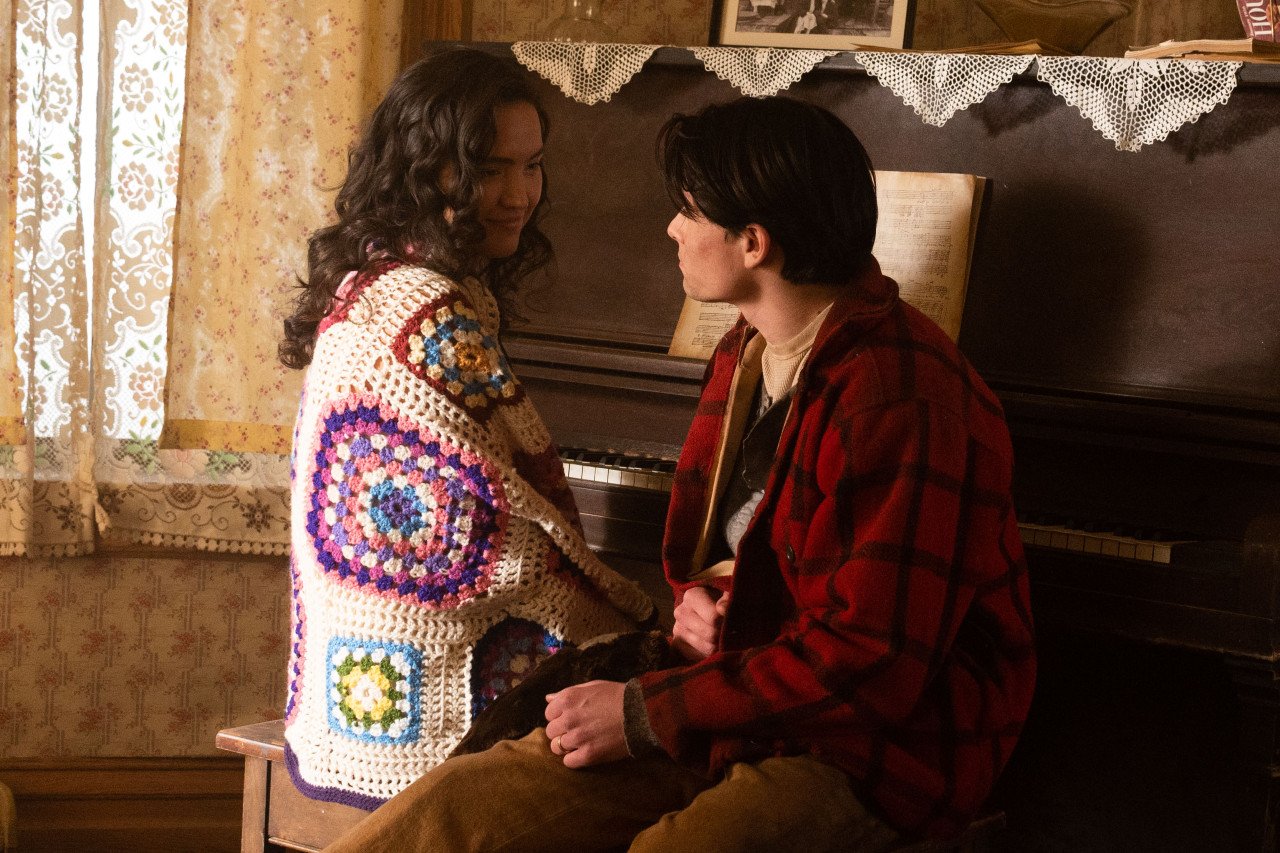Bones of Crows: Fact-Based Drama Depicts the Horrors of Residential Schools
By Kim Hughes
Rating: B+
It’s unsurprising that writer-director Marie Clements’ Bones of Crows opens with a trigger warning, for what follows in this sweeping, multigenerational, fact-based drama is harrowing, realistically portrayed, and almost unbearably grim.
Forewarned is forearmed though Bones of Crows, which premiered last fall at TIFF and is now opening wide, should be required viewing for Canadians and anyone not already exhausted from tallying the transgressions of the Catholic church, in this case with the explicit backing of the Canadian government.
The film charts the life of Cree woman Aline Spears (played variously by Summer Testawich, Grace Dove, and Carla Rae) across the 20th century, from childhood to elderhood. We meet her as a girl in a happy, stable Manitoba family headed by loving parents. But the Spears’ domestic idyl is shattered when the children are scooped up and forcibly situated in a residential school.
What follows is the dire, systemic sexual, physical, and psychological abuse that is now emblematic of these acknowledged pits of hell. The film skips backwards and forward in time and place. Musically gifted childhood Aline plays piano for the clergy during dinner, as the men in black stuff their faces while remarking how it’s best to starve their charges (all the better to control them). Jumps in time beget other jumps; we now see Aline navigating motherhood.
Young Aline joins the military, where her ability to still speak Cree — a language the nuns and priests at the residential school tried to strip her of — is, ironically, a great asset to the war effort in the 1940s. She works in London. She marries Montreal, has children, stays in touch with surviving siblings and eventually, as an old woman and with the support of her lawyer daughter, confronts the church and one particularly sinister tormentor.
But no final showdown, no matter how bracing, can undo the lifelong suffering afflicted upon Aline, her beleaguered sister Perseverance (Alyssa Wapanatâhk) and, by implication, the thousands of other children stripped of their families, culture, language, dignity and even their lives by the residential schools.
Clements’ searing film — notably and beautifully shot on traditional territories and with its unanimously strong performances abetted by a brilliant cameo by filmmaker Alanis Obomsawin — is unsparing, as perhaps it must be. The horrors of residential schools should be perceived through a lens of revulsion and deep regret.
Still, it is very hard to watch children being stomped on, tortured, molested, dying, and then to watch their adult selves funneling all that trauma into behaviour guaranteed to further compound their suffering and disenfranchisement.
Equal parts indictment and historical score-setter, Bones of Crows is the film we deserve, its message of personal and spiritual resilience unmistakable. But enter knowing it is bleak beyond the most chilling slasher flick. Because it’s true.
Bones of Crows. Written and directed by Marie Clements. Starring Grace Dove, Phillip Forest Lewitski, Rémy Girard, Karine Vanasse, Alyssa Wapanatâhk, Michelle Thrush, Gail Maurice, Carla Rae, and Cara Gee. In theatres June 2.



